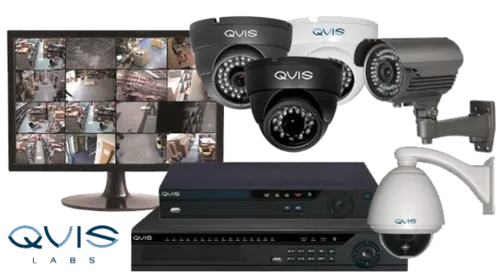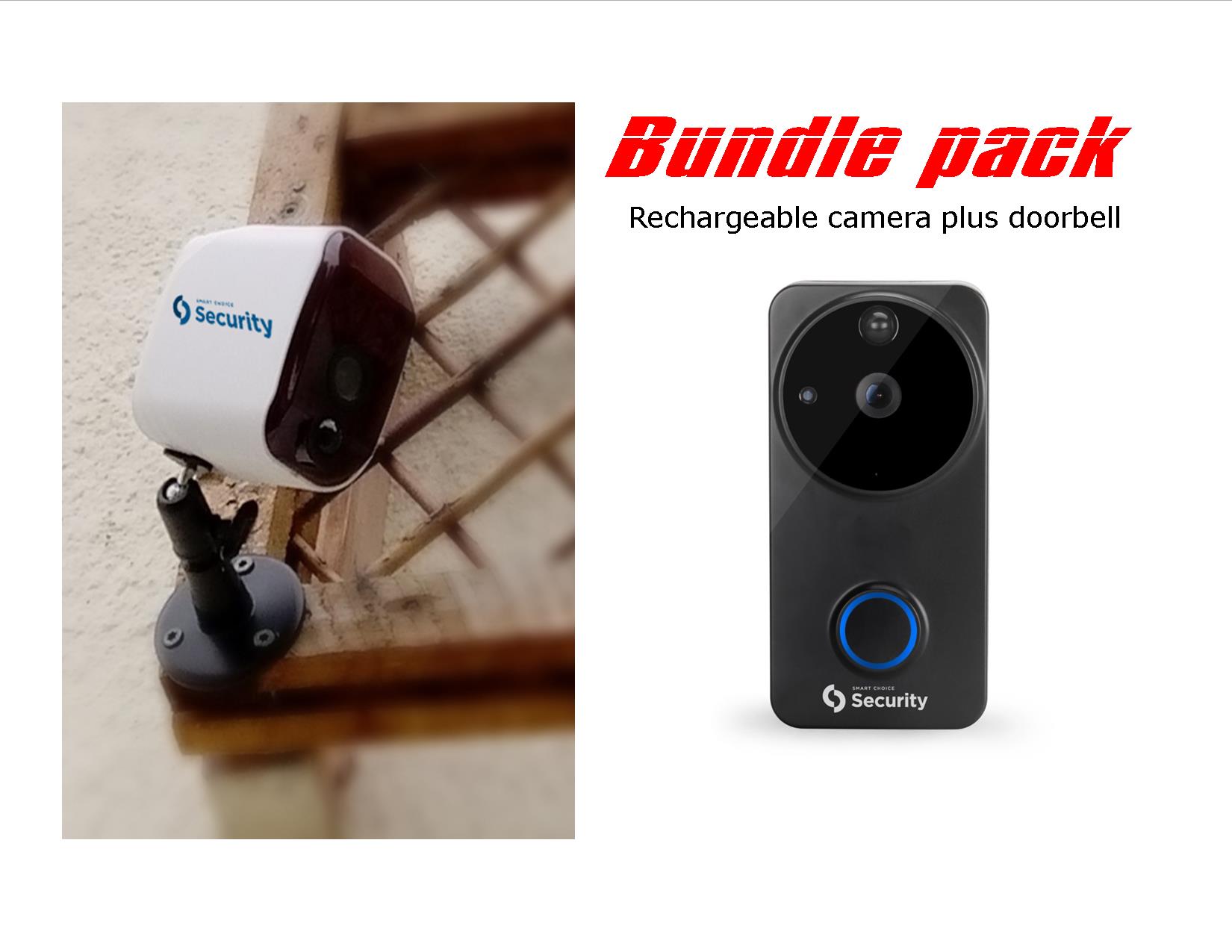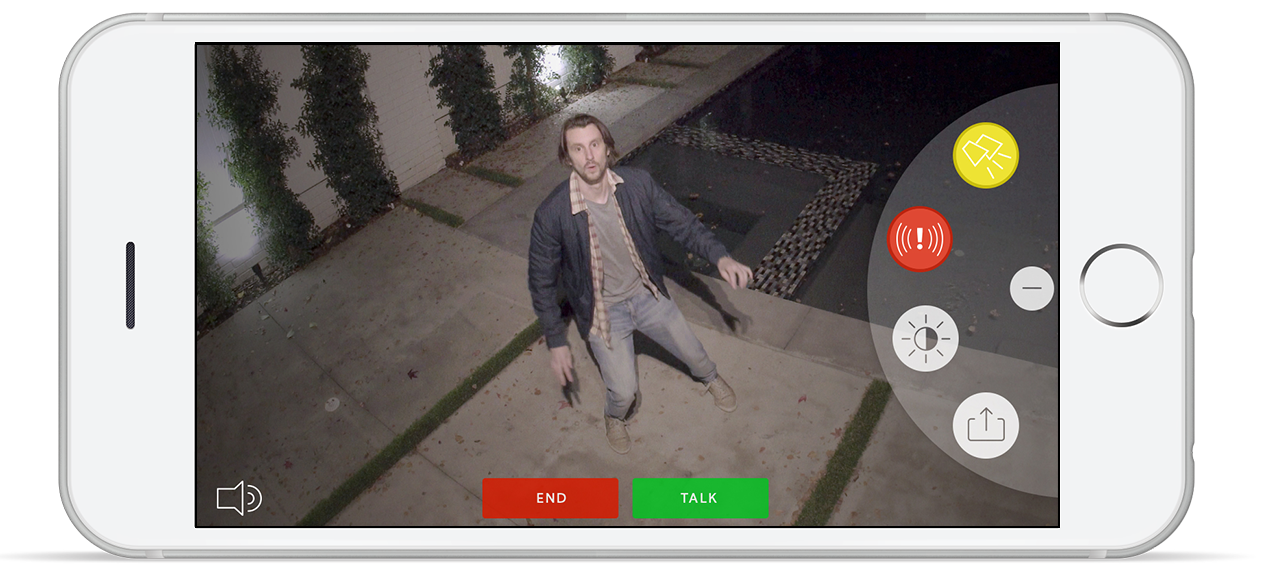Smart CCTV vs. Traditional Security Cameras Which One is Right for You

Understanding the Differences Between Smart CCTV and Traditional Security Cameras
Two options are available regarding surveillance systems: traditional security cameras and smart CCTV cameras. Traditional security cameras capture footage and store it on a local device. In contrast, smart CCTV cameras use advanced technology to analyse footage in real-time and provide additional features such as facial recognition or object tracking.
One of the benefits of traditional security cameras is their simplicity. They are easy to install and operate, making them an ideal choice for small businesses or homeowners. However, they lack advanced features that can be useful in certain situations.
On the other hand, smart CCTV cameras offer advanced features such as facial recognition and object tracking, which can be useful in identifying potential threats quickly. However, they require more complex installation and maintenance procedures.
Choosing the right surveillance system for your needs is crucial. It depends on the specific requirements of your location or property. For example, traditional security cameras may be sufficient if you need a simple solution for monitoring a small area. However, smart CCTV cameras may be better if you require advanced features such as facial recognition or object tracking.
Both traditional security cameras and smart CCTV cameras have their benefits and drawbacks. Choosing the right surveillance system requires careful consideration of individual needs and requirements. By selecting the appropriate system, you can ensure that your property is secure and protected against potential threats.
Features and Capabilities of Smart CCTV Cameras
Smart CCTV cameras offer advanced features and capabilities that traditional security cameras lack. Some of these features include:
1. Remote Access: Smart CCTV cameras allow remote access through smartphones or computers, enabling users to monitor their property anywhere.
2. Cloud Storage: Smart CCTV cameras offer cloud storage options for recorded footage, providing a secure and reliable way to store data.
3. Advanced Features: Smart CCTV cameras have advanced features such as facial recognition, motion detection, and AI algorithms that can quickly identify potential threats.
4. Integration with Other Home Automation Devices: Smart CCTV cameras can integrate with other home automation devices, such as smart locks or lights, providing a complete security solution for your home.
These advanced features and capabilities make smart CCTV cameras an ideal choice for those who require more sophisticated surveillance systems. However, it is important to note that these devices may also raise privacy concerns due to their advanced features, such as facial recognition.
Smart CCTV cameras offer many advanced features and capabilities that traditional security cameras lack. Choosing the right surveillance system depends on individual needs and requirements. By selecting the appropriate system, you can ensure that your property is secure and protected against potential threats while still respecting individuals' privacy rights.
Benefits of Choosing a Smart CCTV System

Smart CCTV systems offer several benefits over traditional security cameras. One of the most significant advantages is that they can provide real-time alerts for suspicious activity detected by the camera. These notifications can be customised based on specific triggers, such as motion detection or facial recognition, providing a more tailored and effective security solution.
Another benefit of smart CCTV systems is their two-way audio communication features, allowing you to communicate with people at your front door or in other areas of your property. This feature can be particularly useful for remote monitoring and can help deter potential intruders.
Smart CCTV systems also offer cloud storage options, providing a secure and reliable way to store recorded footage. This eliminates the need for local storage devices, which can be vulnerable to theft or damage.
Overall, smart CCTV systems offer advanced features and capabilities that traditional security cameras lack. They provide a more comprehensive and effective security solution for both residential and commercial properties. Choosing a smart CCTV system ensures your property is secure and protected against potential threats.
Drawbacks to Consider When Choosing a Smart CCTV System
While smart CCTV systems offer many benefits, there are also some drawbacks to consider when choosing this security solution. One of the main drawbacks is the higher cost associated with advanced technology and cloud storage capabilities. Smart CCTV systems require more sophisticated hardware and software, which can drive up the overall cost.
Another consideration is that smart CCTV systems require a stable internet connection for optimal performance. If the internet connection is unreliable, it can affect the video feed quality and lead to interruptions in service.
Finally, smart CCTV systems are susceptible to network disruptions that could affect video feed quality. This can be especially problematic if you rely on the system for real-time monitoring or need to access footage quickly.
It is essential to weigh these drawbacks against the benefits when considering whether a smart CCTV system suits your needs. While they offer advanced features and capabilities, they may not suit every situation or budget. It is crucial to consider your specific requirements and budget when choosing a security solution to ensure you get the best value for your investment.
Features and Capabilities of Traditional Security Cameras
Traditional security cameras offer several features and capabilities that make them a viable option for those seeking a security solution. One of the main advantages of traditional security cameras is that they allow for local recording without an internet connection. This feature can be useful in areas with poor internet connectivity or where remote monitoring is unnecessary.
Additionally, traditional security cameras often come with longer warranties and customer support services than smart CCTV systems. This can provide users peace of mind, knowing they have access to reliable technical support if any issues arise.
Another benefit of traditional security cameras is that they can offer better image quality in some cases compared to certain smart CCTV systems. This is because traditional cameras tend to have higher-resolution sensors and lenses, which can produce sharper and more detailed images.
While smart CCTV systems offer advanced features and capabilities, traditional security cameras may still be viable for those seeking a security solution. Users can select the appropriate system that provides the best value for their investment by considering individual needs and requirements.
Benefits of Choosing a Traditional Security Camera System
Traditional security camera systems offer several benefits that make them a viable option for those seeking a security solution. One of the main advantages is that they provide continuous recording without interruption. This means that users can constantly stream footage, providing a more comprehensive and accurate view of potential threats.
Additionally, traditional security cameras often come with a durable design that can withstand harsh weather conditions. This feature makes them ideal for outdoor use, as they can continue to operate even in extreme temperatures or adverse weather conditions.
Another benefit of traditional security cameras is that they are less susceptible to cyber attacks since data is stored locally. This eliminates the risk of data breaches or hacking attempts, providing greater peace of mind to users.
Overall, traditional security camera systems offer advanced features and capabilities, making them an excellent option for those seeking a reliable and effective security solution. Users can select the appropriate system that provides the best value for their investment by considering individual needs and requirements.
Drawbacks to Consider When Choosing a Traditional Security Camera System

There are several drawbacks to consider when it comes to traditional security camera systems. One of the main disadvantages is that they lack advanced features such as facial recognition or AI algorithms. This means that users may be unable to benefit from the latest technologies in security and surveillance.
Another drawback of traditional security camera systems is that they do not offer remote access options. This can be a significant disadvantage for those who need to monitor their property while away from home or the office.
Additionally, manual adjustments are required onsite for traditional security camera systems. This can be time-consuming and inconvenient, particularly if the cameras are located in hard-to-reach areas.
While traditional security camera systems offer reliable and effective security solutions, they may not be suitable for those seeking more advanced features or remote monitoring capabilities. Users can select the appropriate system that provides the best value for their investment by considering individual needs and requirements.
Privacy Concerns With Both Types Of Surveillance Systems
Both smart CCTV systems and traditional security cameras can raise privacy concerns for individuals. With smart CCTV systems, there is a risk that facial recognition or AI algorithms may be used to identify individuals without their consent. The use of cloud storage can also raise concerns about who has access to the data and how it is being used.
Similarly, with traditional security cameras, there is a risk that individuals may be recorded without their consent. The lack of advanced features means that there may be less control over who is being recorded and when.
To mitigate these risks, it is important to take precautions when installing surveillance systems. This includes informing individuals who may be recorded of the presence of cameras and obtaining their consent where necessary. It is also important to ensure that data is stored securely and only accessible by authorised personnel.
Additionally, limiting the use of advanced features such as facial recognition or AI algorithms may be beneficial unless they are necessary for specific security purposes. By taking these precautions, individuals can help ensure that their surveillance systems are used ethically and responsibly while providing the desired security level.
Factors To Consider Before Making A Decision On Which Type Of Surveillance System To Choose
When choosing a surveillance system, several factors need to be considered to ensure that the system meets your specific needs. One of the primary considerations is budget and cost. Smart CCTV systems tend to be more expensive than traditional security cameras due to their advanced features and capabilities. Therefore, assessing your budget and determining how much you are willing to spend on a surveillance system is essential.
Another factor to consider is your specific needs for a surveillance system. This includes the size of the area that needs to be monitored, the level of security required, and any specific features that may be necessary, such as facial recognition or remote access.
Technical knowledge required for installation is another factor that needs to be considered. Smart CCTV systems often require more technical expertise than traditional security cameras due to their advanced features and cloud-based storage options. Therefore, it is important to assess your technical knowledge and determine whether you can install and maintain the system or if you need professional help.
Overall, when choosing a surveillance system, it is essential to consider your budget, specific needs, and technical knowledge required for installation. By considering these factors, you can select the appropriate system that provides the best value for your investment while meeting your security needs.
Comparison of Smart CCTV vs Traditional Security Cameras: Which One Is Right For You?
When deciding between smart CCTV and traditional security cameras, it is important to consider the benefits and drawbacks of each option. Smart CCTV systems offer advanced features such as facial recognition and AI algorithms, making them ideal for large-scale surveillance. However, they can be more expensive and require technical expertise to install and maintain.
In contrast, traditional security cameras are more affordable and easier to install. They provide continuous recording without interruption and are less susceptible to cyber attacks since data is stored locally. However, they lack advanced features such as facial recognition or AI algorithms, which may limit their effectiveness in certain situations.
When making a decision between the two options, it is essential to consider factors such as budget, specific needs for surveillance, and technical knowledge required for installation. For example, if you need a system for outdoor use that can withstand harsh weather conditions, a traditional security camera may be the better choice. On the other hand, if you need a system with advanced features such as facial recognition or remote access options, a smart CCTV system may be more suitable.
Ultimately, the decision between smart CCTV and traditional security cameras will depend on individual needs and requirements. By carefully considering these factors, individuals can select the appropriate system that provides the best value for their investment while meeting their specific security needs.
When making a decision between smart CCTV and traditional security cameras, it is essential to consider factors such as budget, specific needs for surveillance, and technical knowledge required for installation. For example, if you need a system that provides advanced features such as facial recognition or remote access options, a smart CCTV system may be more suitable. On the other hand, if you need a more affordable option that is easier to install and maintain, a traditional security camera system may be better suited.
Overall, by following these steps and considering individual needs and requirements when choosing between smart CCTV and traditional security cameras, individuals can select the appropriate system that provides the best value for their investment while meeting their specific security needs.
Final Thoughts: Making an Informed Decision About Your Surveillance Needs
Choosing the right surveillance system for your needs is crucial to ensure your security and privacy. Throughout this article, we have discussed the benefits and drawbacks of both smart CCTV and traditional security cameras, as well as factors to consider when making a decision.
It is important to choose a reputable provider with experience in security systems to ensure that your system is installed correctly and operates effectively. This will also help you avoid common mistakes during installation and ensure that you get the most value for your investment.
Ultimately, making an informed decision about your surveillance needs requires careful consideration of individual needs and preferences. By taking into account factors such as budget, specific needs for surveillance, the technical knowledge required for installation, and choosing a reputable provider, you can select the appropriate system that provides the best value for your investment while meeting your specific security needs.
Remember that choosing a surveillance system is an investment in your safety and security. Take the time to research and consider all options before making a decision.
